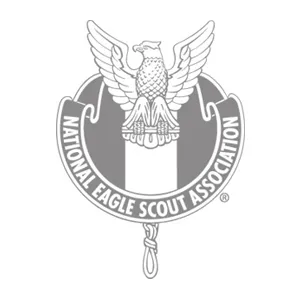Bandages
posted: Sep. 05, 2019.

Spider webs were used as bandages in ancient times.
Did you know spider webs serve another purpose other than being the home of your friendly, neighborhood spider? Spider webs make for an excellent natural treatment for healing cuts and scrapes! In ancient Greece and Rome, doctors used spider webs to make bandages for their patients. Spider webs supposedly have natural antiseptic and anti-fungal properties, which can help keep wounds clean and prevent infection. It’s also said that spider webs are rich in vitamin K, which helps promote clotting.
Spider webs are incredibly strong. It’s made from silk produced from the body proteins of the spider, turning it into silk through spinnerets. The spinnerets are located on a spider’s abdomen. Each spider has three or four spinnerets. Inside the spinnerets are numerous spigots connected to a single silk gland. The spider silk starts out in liquid form. As the material is being drawn out of the spider’s body, it begins to harden. This movement changes the structural components of the silk.
Using cobwebs or spider webs has been done since ancient times when Greeks and Romans treated wounded soldiers with it to stop bleeding. Soldiers would also use a combination of honey and vinegar to clean deep wounds and then cover the whole thing with balled-up spider webs.
An open wound treated with a cluster of spider webs will dry out faster. Spider webs have antifungal and antiseptic properties that keep bacteria away, minimizing the chances of an infection. As long as the web is clean, it will not cause any infection or aggravate the wound’s condition at all.
t’s easy to make your own bandage. First, you have to look for a clean spider web — you want a freshly spun web or one that does not have insect corpse in there. If the spider’s in there, remove the little critter carefully and harvest the web.
Then, ball up the spider web and stuff it onto the wound. Make sure all edges are covered by the web. The web has to touch the surface of the wound. Get a sterile cloth and cover the wound with it. This helps secure the web on the wound while also protecting the affected area from the elements. And there you have it, your own bandage made from spider web.
If the spider web has hardened on your wound and it’s hard to remove, just run your wound over warm water. The water will loosen the web, making it easier to remove.
